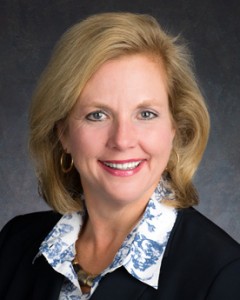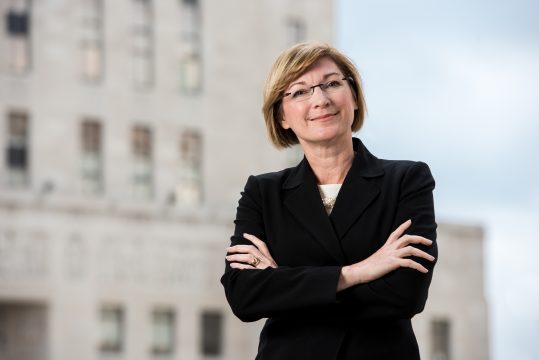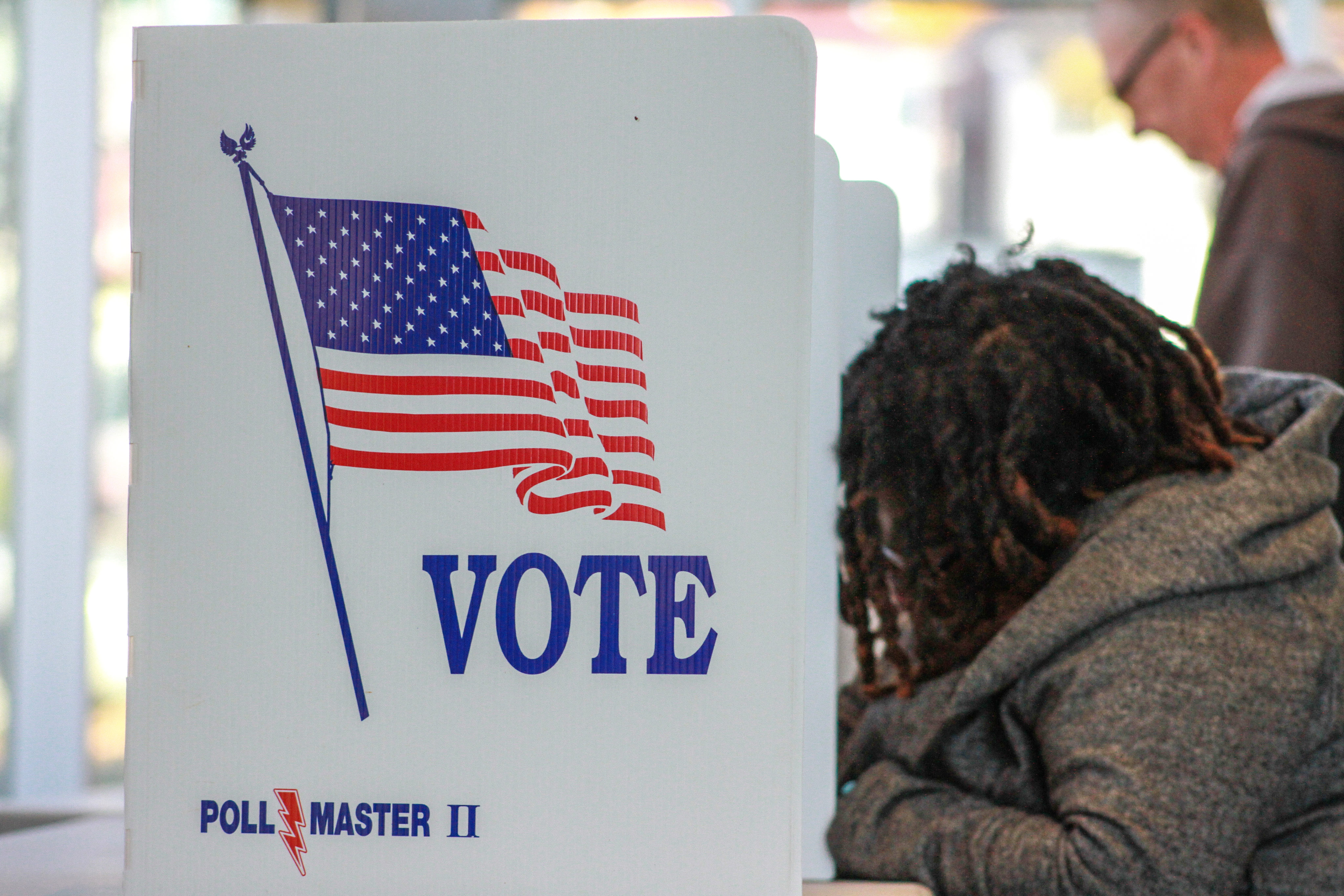JEFFERSON CITY, Mo. — Exactly 100 years after women gained the right to vote in Missouri, some of the state’s most influential political females reflected on just how important that milestone anniversary is to the state.
Before the 19th Amendment to the U.S. Constitution was officially adopted in 1920 — prohibiting denying the right to vote on the basis of sex — the Missouri General Assembly passed legislation allowing women to vote for the president and vice president in the 1920 election. The bill was signed by then-Gov. Frederick D. Gardner on April 5, 1919, according to the League of Women Voters of Missouri.
Another exceptional facet of the legislation: it was the first bill introduced in the new state Capitol. The League of Women Voters — which was then the Missouri Women Suffrage Association — was largely credited for pushing for its passage.
Ahead of the landmark anniversary, The Missouri Times spoke to several women across the political spectrum and ideologies about how women have impacted the state — and what still needs to be done even 100 years later.
Gracia Backer, former state representative, first female floor leader

When Gracia Backer’s state representative — someone whom she liked — decided not to run again, she openly wondered who would replace him. Her husband uttered three words to her that put her on a path to serving in the Missouri House for nearly two decades: “What about you?”
Backer, who was the first female floor leader, remembers her time in the legislature as one that was “exciting” as women were given the opportunity to serve on and lead committees that weren’t necessarily geared toward so-called “women’s issues.” She said the women she served with, in particular, were dedicated to learning the House rules “to make sure we could participate and become politically savvy.”
This anniversary “is absolutely one of the most important times we should and need to recognize,” Backer said. “I want young women to keep that path cleared that we cleared and the women before us cut down and cleared.”
Catherine Hanaway, former state House Speaker, the only woman to hold the role

Catherine Hanaway credits the women who tirelessly worked to solidify for their gender the right to vote 100 years ago for her lengthy career in public service. Hanaway served as the first and only female speaker of the House.
She also noted the importance of the “people who are raising the future of America” — mothers — to be able to vote, participate in government, and be political role models for kids. Additionally, Hanaway pointed to women involved in the pro-life movement across the country as an important aftermath of getting the right to vote.
“Anytime our country has the input of people who are the majority of the population, that’s a good thing,” Hanaway said.
Gina Walsh, Democratic state senator and Minority Floor Leader

For the 100th anniversary, state Sen. Gina Walsh has a challenge for Missouri women: get more involved.
“We haven’t progressed enough. We’re more than half the population, and we’re one-fourth of the representation in these chambers,” Walsh said, encouraging women to run for a variety of offices next year, from the General Assembly to school boards to city councils.
“We need to build the bench, and women need to start participating more, too,” she said. “We need to take ownership of it, ownership of the fact that it’s not a fair representation. We’ve done better in the last couple of years, but we still have a long way to go to catch up.”
Walsh noted women can bring different perspectives and approaches to politics. Particularly, Walsh pointed to sex trafficking and sexual assault as issues tending to impact women more so than men and where women can offer more empathy and sympathy.
Cindy O’Laughlin, Republican state senator

Because of the oftentimes unique perspective women have, it should be important to both genders if women have the ability to vote, state Sen. Cindy O’Laughlin said.
The Republican legislator said she looks at the issues impacting her district and tries to figure out just how to make Missouri a better place to live — both for individuals today and future generations. Women, O’Laughlin said, can be “uniquely suited” for those types of problems because they “have more empathy in general.”
“It’s maybe a little easier for us to put ourselves in someone else’s place and try to see the world through their eyes,” she said.
O’Laughlin also said women can be better with problem-solving and compromise, too.
“They’re good at being around people, reading them for who they are, understanding their personality, and being able to successfully piece together a winning coalition. That’s what women can bring to a problem-solving position,” O’Laughlin said.
Brenda Shields, Republican state representative

When walking through the halls of the Capitol building, state Rep. Brenda Shields often stops to look at the photos of the women who have served before her. Specifically, Shields pointed to Catherine Hanaway, the first female House speaker, and Margaret Kelly, the first woman who served in a statewide office, as those who helped pave the way for her to serve in the House.
Kelly, in particular, was a member of the same sorority as Shields, giving the Republican state representative hope that she, too, could serve in office.
But when it comes to representing her constituents, Shields said she hopes she’s seen as a legislator who serves those who elected her, instead of just a female lawmaker.
Tracy McCreery, Democrat state representative
Having a say in the democratic process has led to even more opportunities for women, such as increased educational experiences and healthcare reforms, according to state Rep. Tracy McCreery.
But despite the progress, McCreery said there’s still a “long way to go” to achieve full equality — particularly when it comes to equal pay.
“Celebrating 100 years of women having the right to vote gives us a time to reflect on the struggle and sacrifice those who came before us took on, and how we can continue to push for expansive equality.”
“Celebrating 100 years of women having the right to vote gives us a time to reflect on the struggle and sacrifice those who came before us took on, and how we can continue to push for expansive equality,” McCreery said.
Kathy Swan, Republican state representative

For state Rep. Kathy Swan, the right to vote has really “made all conversations more inclusive” as women with different perspectives can be heard. But while legally women are considered equal to men, Swan said that’s not necessarily the case “in reality and practice” today.
“I think there’s still a glass ceiling that many women still struggle with. Men are more naturally seen as leaders than women are,” Swan said.
And Swan personally feels the need to go above and beyond when learning about an issue before she felt she could speak about it or file a bill.
“I feel like I need to be very well-informed before I engaged in conversation,” Swan said, adding that she tells younger women there’s always a benefit in knowing and learning more than maybe is expected.
But Swan also said women in leadership positions — from executives to policymaking roles — have a great responsibility as “we have made great strides in the last many, many years.”
“That responsibility is that we remain professional, we remain committed to the job we’re serving in, and that we do work hard, and we keep our eye on what that goal is and less on maybe our gender itself and not use our gender for personal gain,” Swan said.
Jean Peters Baker, Missouri Democratic Party chairwoman

While remembering the 100th anniversary of women gaining the right to vote, Jean Peters Baker, the Missouri Democratic Party chairwoman, is also looking ahead to the upcoming 2020 elections. The party’s goal, she said, is to have a record number of women win offices then.
“It’s often said that women can’t win if women don’t run,” Baker said. “Women in government not only bring women’s issues to the forefront of our political debates, they elevate policies that benefit families and communities.”
“Achieving more equitable representation in government then is essential to making our policy outcomes more representative of our state as a whole,” she added.
Peters is part of the first time both the Demcratic and Republican Parties in Missouri have both women chairs and executive directors.
Kellie Ann Coats, executive director of the Missouri Women’s Council
Kellie Ann Coats, the executive director of the Missouri Women’s Council, an agency with the Department of Economic Development, said the milestone anniversary is important for all women, especially in the state’s capital.
“The right to vote is a sacred pillar of democracy; it’s the embodiment of representation, of an individual’s voice and impact.”
“Anniversaries like this one help us to remember how far we’ve come, and how far we still want to go,” Coats said. “When you vote, it’s about so much more than putting pen to paper. The right to vote is a sacred pillar of democracy; it’s the embodiment of representation, of an individual’s voice and impact.”
Ellie Glenn, director of government relations for the St. Louis Children’s Hospital
Admittedly, Ellie Glenn, director of government relations for the St. Louis Children’s Hospital, wasn’t initially aware of the 100th anniversary. Giving credit to the work the women’s movement has done for gender equality, Glenn said it’s “one of those things we take for granted.”
But still, there’s more work to be done, Glenn said, especially when it comes to equal pay. In Missouri, data shows women — particularly women of color — make less than men do for the same work, she said.
“Simply being at the table helps people see things from a different perspective,” Glenn said. “Having women at the public policy table, especially diverse women, I think broadens access and acceptance of viewpoints someone might not have considered before just because they might not know anyone like them previously.”
“Similarly … women in very rural Missouri experience very similar issues that women in the urban core do in terms of maternal health and toxic stress,” she continued. “Knowing that, how can we help bridge the gap for women in these very different areas who need the same access to health care services?”
Glenn is the 2019 session chair of the Women’s Policy Network in the Capitol, which has a panel upcoming at the end of the month
Leann Chilton, vice president of BJC Government Relations
Leann Chilton, the vice president of BJC Government Relations, has seen many changes in her three decades of work in policy and politics.
“I am thrilled to see more women run for office or choose a lobbying career than ever before,” Chilton said. “Their voices and influence to impact change provide a more balanced viewpoint for the larger population.”

Kaitlyn Schallhorn was the editor in chief of The Missouri Times from 2020-2022. She joined the newspaper in early 2019 after working as a reporter for Fox News in New York City.
Throughout her career, Kaitlyn has covered political campaigns across the U.S., including the 2016 presidential election, and humanitarian aid efforts in Africa and the Middle East.
She is a native of Missouri who studied journalism at Winthrop University in South Carolina. She is also an alumna of the National Journalism Center in Washington, D.C.
Contact Kaitlyn at kaitlyn@themissouritimes.com.



